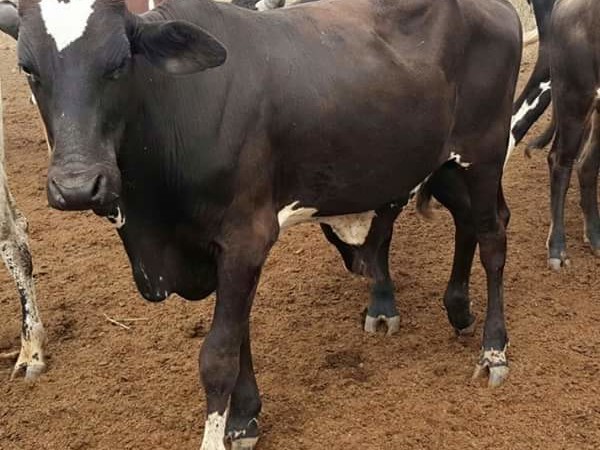

It is a herdsman’s worst nightmare. He’s expecting a crop of calves. Day after day passes, and the calves just don’t show up. The cows don’t look like they are in any hurry to calve. A few calves may arrive, but after a month or two goes by, it is clear to the herdsman that he has a fertility issue in his herd. Whether it is one cow who doesn’t breed back reliably, several cows who just can’t produce, or most of the herd coming up open, having infertile cows will cost the farmer money. Here are three common fertility issues and what you can do to avoid them.
1. Feeding properly.
On their own, cows are extremely fertile animals. However, in periods of nutritional stress, cows’ reproductive efficiency will suffer. Cows may not cycle at all or they may have cycles in which they do not release an egg. Skinny cows may abort early because they don’t have the nutritional reserves to maintain and nourish a pregnancy.
If your summer is dry or you have inadequate or poor quality hay, you should make the tough decision to cull cows. By selling some of the herd, you will be more likely to get calves the next year. Would you rather have a small herd that is in decent condition with marketable calves at each cow’s side; or would you rather have a large herd of skinny cows with only a few calves to sell? In years when feed is scarce, these are the decisions that wise farmers will have to make.
Additionally, if you have very fat cows, they can have breeding issues too. This most often happens with dairy cows. When a dairy cow is going into the dry period, don’t forget to cut back on her grain ration to keep her from getting too fat.
2. Bull and AI issues.
Sometimes it isn’t the cow that is at fault. Sometimes the cow isn’t pregnant because of a bull or artificial insemination issue.
Bulls can be injured or acquire infections that will affect their fertility. If a bull is leased or you have loaned your bull out to someone else, you will want to double check that he has not picked up a venereal disease that will reduce his fertility. Additionally, a venereal disease can be spread to your own cows, so take the time to have the vet draw some blood to ensure the safety of your animals. Before each year’s breeding season, it is advantageous to take the bull to the vet for a breeding soundness exam to ensure that he is operating in the peak of health.
Artificial insemination will only work if it is done properly. Accurate monitoring of heat cycles is crucial to the success of AI. You have to breed the cow about 12 hours after she is in standing heat for the maximum chance of pregnancy. To make sure that your cows are pregnant, watch for heat cycles 21 days after she was initially bred. If there are no signs of heat after a few weeks, have the cow pregnancy checked. It only costs a few dollars, but you will know for sure that she is expecting a calf.
3. All around herd health.
Healthy cows are much more likely to breed on time each year. Address any infections right away, make sure that they have the correct minerals, and pay close attention to anything else that will affect their health statuses. Worm your cows once or twice a year, give them vaccinations appropriate for your area, and keep the fly and lice population down by spraying them with pesticides. Rotate their fields so that you can keep the pasture forages healthy and your cows will have lower parasite loads. Farmers who are diligent about herd health will be paid back in a good crop of calves the next season. Farmers who are not careful may end up with late calves or no calves. Just practicing all around good herdsmanship will pay off in the long run.
 Contact Jaguza Support
Contact Jaguza Support